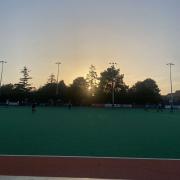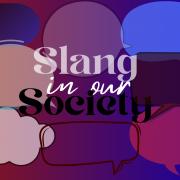
With feminism becoming increasingly accepted within society, the lack of representation for intersectionality in the movement is becoming apparent. The term intersectionality created by Kimberlé Williams Crenshaw refers to the specific oppression women in ethnic minority, LGBTQ+, disability, marginalised religions and working-class groups face as the forms of inequality intersect. However, the generalised experience of sexism within feminism accounts mostly for the struggle of cis-gendered, straight, white women, silencing the experiences of many.
The feminist movement and it's history has been whitewashed. Academic curriculum surrounding the suffragettes solely refers to straight, middle class, white people involved in the attainment of women’s rights, obstructing the significant role LGBTQ and females of colour played in the movement. By failing to recognise the acts of these individuals, our society perpetuates an idea that racism, homophobia, ableism and many more discriminative issues have no correspondence within feminism.
Sarah Parker Redmond has been entirely dissolved from textbooks. Her lectures in the UK as an African American female on the sexual exploitation of enslaved black women, increased signatures on the 1866 petition for women’s voting rights. Sophia Duleep Singh, a Punjabi suffragette was also removed from history. In 1910 she led the 400-person ‘black Friday,’ march to parliament with Emmeline Pankhurst and was an avid campaigner for the women’s social and political union (WSAPU.) Countless numbers of suffragettes were also members of the LGBTQ community including Christabel Pankhurst, the younger sister of Emmeline and co-leader of the WSAPU along with Dame Ethel, a musician and supportive member of the union. The removal of LGBTQ and women of colour from the history of feminism silences the significant role they played in this part of history. There is a clear issue in Britain’s denial of it's past within its refusal to educate the younger members of society on the incredible acts of hidden female ethnic and LGBTQ figures.
Furthermore, the belief that the suffragettes worked for the rights of all women is false. The white supremacy that controlled Britain was also ingrained within this movement. Many white suffragettes believed in the inferiority of other races and this information is not widely-known, particularly in the education system. This lack of knowledge is a reflection of the privilege that white women have . The beginning of the feminist movement is seen as starting with the suffragettes and if there was white supremacy within the history which has not been recognised, it most definitely will have been transferred into the way we understand current feminism.
Despite the diverse group of people who classify themselves as feminists, there is an unjust supremacy of white, straight, cisgender, able-bodied, middle-class women who vocalize their experiences disproportionately in the movement, suggesting their narrative is universal and applicable to all. This is reflected in the white washing of the movement’s representation and lack of teaching on the suffragette movement's racist nature. As said by Kimberlé Williams Crenshaw “intersectionality is a lens through which you can see where power comes and collides, where it interlocks and intersects.”
The feminist movement strives towards equality for all genders, yet this cannot be achieved until marginalized group’s experiences are acknowledged and used to make change. When questioned on intersectionality, some straight, white feminists have shut down the notion, suggesting that to check your privilege “is a profoundly stupid trope” said by white, right wing Louise Mensch in an article from 2013. The problem, however: that women like Mensch fail to recognise the oppression of women is not one common experience. As a straight, white, cis-gendered female, I recognise the huge importance of using my own privilege to amplify the voices of women in oppressive societal margins and to advocate for the necessity of representation within the feminist movement.
The whitewashing of history, uneven distribution of power and denial of privilege within the feminist movement has resulted in a lack of representation of intersectionality, leaving many women in minority groups feeling unheard and isolated. We must acknowledge each individual experience of every woman before equity is attained, developing the knowledge we have of history and giving power to women of LGBTQ, colour, working class, marginalised religion and many more groups to make the feminist movement one that empowers every woman's individual experience.



























